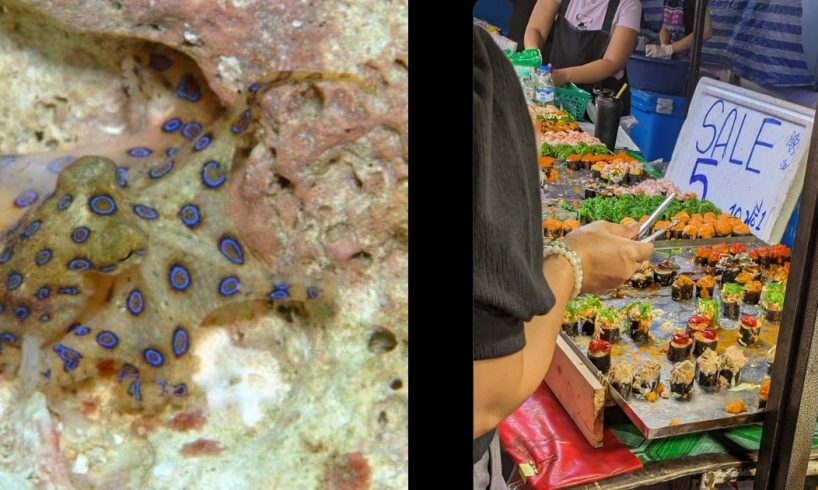

Knowledge is everyone’s power. More often than not, it can be an advantage and save your life. Such an incident occurred to a Thai man who purchased an Octopus Gunkan Sushi in a local shop but noticed that the octopus meat had an unusual pattern on its skin. After observing his purchase, he realized that the octopus meat provided to him was poisonous and that consuming it could be fatal. Fortunately, he knew the species and alerted the store immediately.
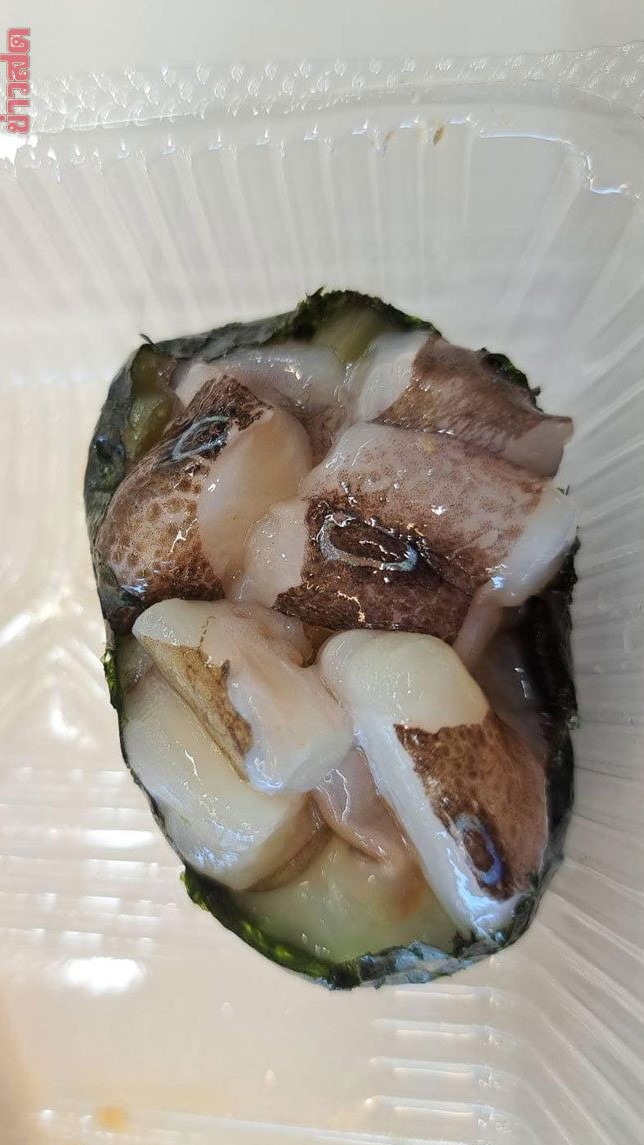
X (formerly Twitter) user, @xavikota, a Japanese blogger, often shares current news in Thailand. In one of his posts, he shared an incident that occurred to a local man who purchased Octopus Gunkan Sushi from a store. When he was about to have his meal, the Thai man noticed that the octopus meat he bought was unusual and suspected that it had a skin pattern similar to the highly venomous “Blue-ringed octopus” (also known as the leopard octopus). This alerted him and he immediately notified the store and requested a refund.
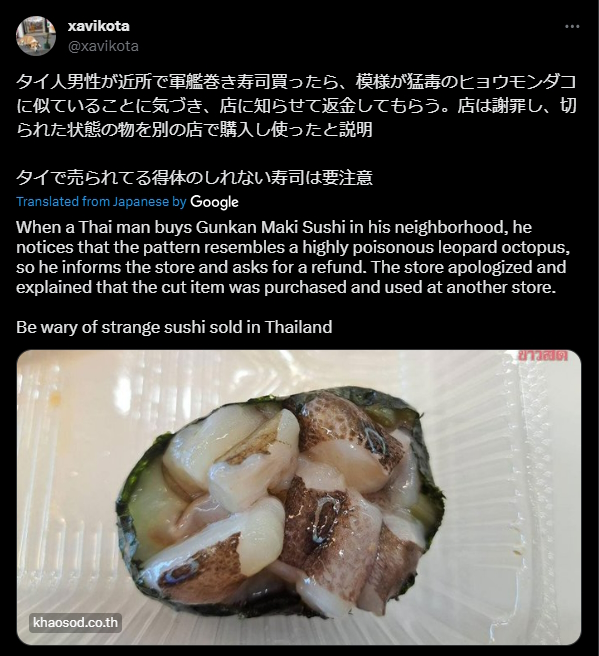
The staff of the store apologized to the man and admitted that the octopus meat was purchased from bulk seafood that was processed outside of the store. The meat slices were combined and brought to the store for selling. The blogger also warned the public about buying sushi from food stalls in Thailand. It is best to know its origin before purchasing to avoid any issues with food safety.
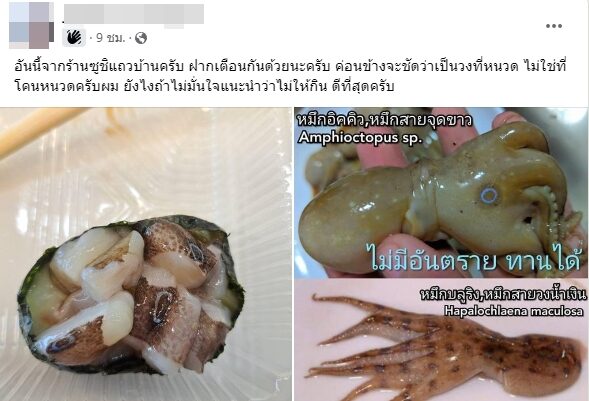
When netizens read the post, they were immediately alerted and some of them exclaimed:
“It’s so scary! Once you eat it, you may get poisoned!”
“This is too scary! If I eat it, I will definitely swallow it in one bite…”
“The leopard octopus is the dangerous kind.”
“It’s so delicious it can kill you.”
“It seems that blue-ringed octopus is used in Thailand for more than a day or two.”
“Thailand’s sushi is amazing! It is heaven-sent.”
“The sushi closest to happiness.”
“Is the person handling the octopus okay? What about the other customers?”
“Even if you eat it cooked, you will still be poisoned. The Blue-ringed octopus is still poisonous after being cooked.”
“You can eat it once in your life.. then you’re gone.”
“I really don’t have any knowledge about any of this… Even eating sushi may kill me.”
“He is very good at recognizing weird things at a glance!”
“So, having more knowledge can save your life.”
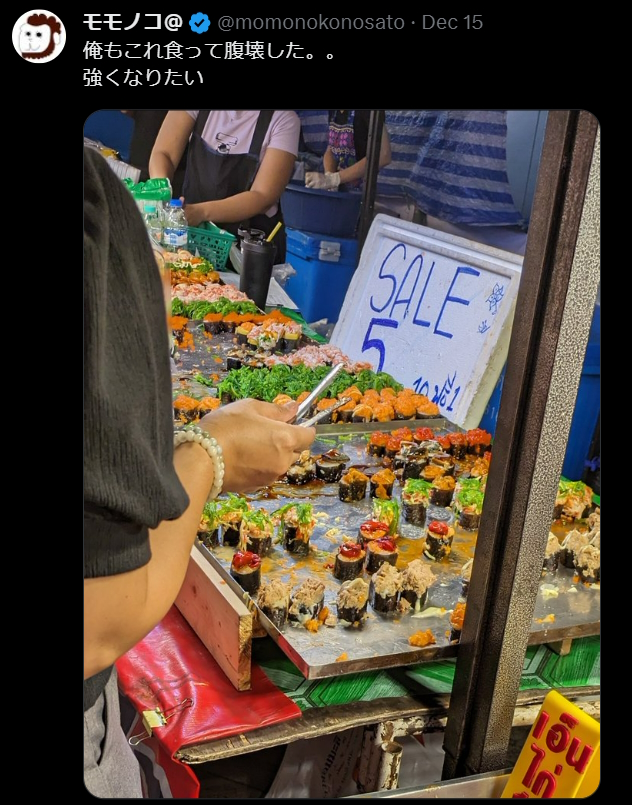
▲ Some netizens shared online that they had stomachaches after eating sushi bought from a stall on the roadside in Thailand.
Some people who know the octopus species have expressed their concerns:
“Although I am not 100% sure, this is probably not the case. If we use the thickness of the tentacles as a scale, if it is really a blue-ringed octopus, then this sushi will only be the size of a fingernail.”
“This is unlike the Blue-ringed octopus, and the stripes look more like the Short-clawed octopus (Amphioctopus fangsiao). It just happens that this sushi has more ringed parts, which looks scarier, but it either has rings or is the Blue-ringed octopus.”
“It doesn’t look like a blue ring. Some small non-venomous octopuses will have 1 or 2 such rings on their bodies.”
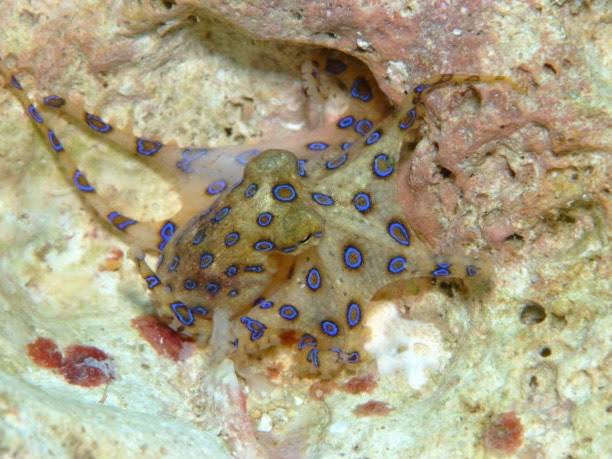
▲ Here is a photo of a Blue-ringed octopus.
Experts reported that ringed octopuses are of the same genus but of different patterns and scientific names. The “Blue-ringed Octopus” (also known as the “Leopard Octopus”) lives on the west coast of the Pacific and is distributed from Japan to Australia. There are 3 confirmed living octopus species and 1 unidentified species. The 3 confirmed species are identified as:
1. The Greater Blue Ring Octopus (Hapalochlaena lunulata)
2. Southern blue-ringed octopus (Hapalochlaena maculosa)
3. Blue-lined octopus (Hapalochlaena fasciata)
The Blue-ringed octopus is only the same size as a golf ball. Despite the size, its venom is more powerful than the cobra’s, and adults may not be able to bear the toxin and die instantly. The toxin of a Blue-ringed octopus is enough to kill 26 adults in just a few minutes. The venom secreted is confirmed to be mainly “tetrodotoxin,” which is 1,000 times more toxic than potassium cyanide and is reported to have no antidote. Therefore, the Blue-ringed octopus is not suitable for consumption since its whole body is full of toxins. A person will get ill and die instantly when a poisonous octopus is accidentally ingested.
Additionally, the toxins will not be eliminated even when the octopus is cooked. Unfortunately, the meat of the Leopard octopus can be confused with ordinary octopus meat. To know if the octopus meat on sale is edible, you need to check its color and patterns before purchasing to avoid fatalities.
Images credits: © xavikota @xavikota/Twitter and Khaosod Online






